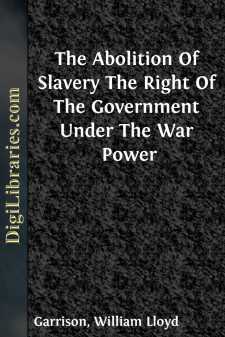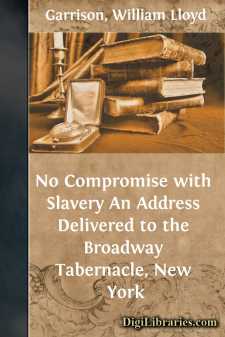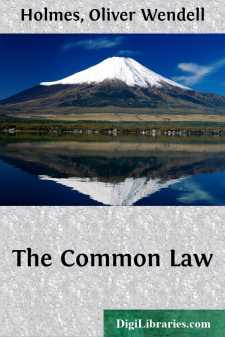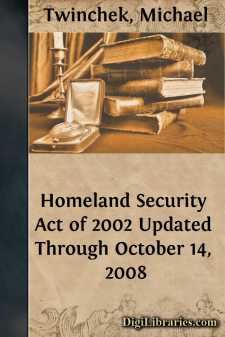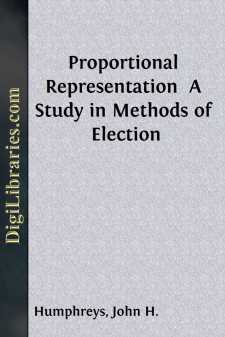Categories
- Antiques & Collectibles 13
- Architecture 36
- Art 48
- Bibles 22
- Biography & Autobiography 813
- Body, Mind & Spirit 142
- Business & Economics 28
- Children's Books 17
- Children's Fiction 14
- Computers 4
- Cooking 94
- Crafts & Hobbies 4
- Drama 346
- Education 46
- Family & Relationships 57
- Fiction 11829
- Games 19
- Gardening 17
- Health & Fitness 34
- History 1377
- House & Home 1
- Humor 147
- Juvenile Fiction 1873
- Juvenile Nonfiction 202
- Language Arts & Disciplines 88
- Law 16
- Literary Collections 686
- Literary Criticism 179
- Mathematics 13
- Medical 41
- Music 40
- Nature 179
- Non-Classifiable 1768
- Performing Arts 7
- Periodicals 1453
- Philosophy 64
- Photography 2
- Poetry 896
- Political Science 203
- Psychology 42
- Reference 154
- Religion 513
- Science 126
- Self-Help 84
- Social Science 81
- Sports & Recreation 34
- Study Aids 3
- Technology & Engineering 59
- Transportation 23
- Travel 463
- True Crime 29
The Abolition Of Slavery The Right Of The Government Under The War Power
Categories:
Description:
Excerpt
EMANCIPATION UNDER THE WAR POWER.
Extracts from the speech of John Quincy Adams, delivered in the U.S.
House of Representatives, April 14 and 15, 1842, on War with Great
Britain and Mexico:—
What I say is involuntary, because the subject has been brought into the House from another quarter, as the gentleman himself admits. I would leave that institution to the exclusive consideration and management of the States more peculiarly interested in it, just as long as they can keep within their own bounds. So far, I admit that Congress has no power to meddle with it. As long as they do not step out of their own bounds, and do not put the question to the people of the United States, whose peace, welfare and happiness are all at stake, so long I will agree to leave them to themselves. But when a member from a free State brings forward certain resolutions, for which, instead of reasoning to disprove his positions, you vote a censure upon him, and that without hearing, it is quite another affair. At the time this was done, I said that, as far as I could understand the resolutions proposed by the gentleman from Ohio, (Mr. Giddings,) there were some of them for which I was ready to vote, and some which I must vote against; and I will now tell this House, my constituents, and the world of mankind, that the resolution against which I would have voted was that in which he declares that what are called the slave States have the exclusive right of consultation on the subject of slavery. For that resolution I never would vote, because I believe that it is not just, and does not contain constitutional doctrine. I believe that, so long as the slave States are able to sustain their institutions without going abroad or calling upon other parts of the Union to aid them or act on the subject, so long I will consent never to interfere. I have said this, and I repeat it; but if they come to the free States, and say to them, you must help us to keep down our slaves, you must aid us in an insurrection and a civil war, then I say that with that call comes a full and plenary power to this House and to the Senate over the whole subject. It is a war power. I say it is a war power, and when your country is actually in war, whether it be a war of invasion or a war of insurrection, Congress has power to carry on the war, and must carry it on, according to the laws of war; and by the laws of war, an invaded country has all its laws and municipal institutions swept by the board, and martial law takes the place of them. This power in Congress has, perhaps, never been called into exercise under the present Constitution of the United States. But when the laws of war are in force, what, I ask, is one of those laws? It is this: that when a country is invaded, and two hostile armies are set in martial array, the commanders of both armies have power to emancipate all the slaves in the invaded territory. Nor is this a mere theoretic statement. The history of South America shows that the doctrine has been carried into practical execution within the last thirty years....


